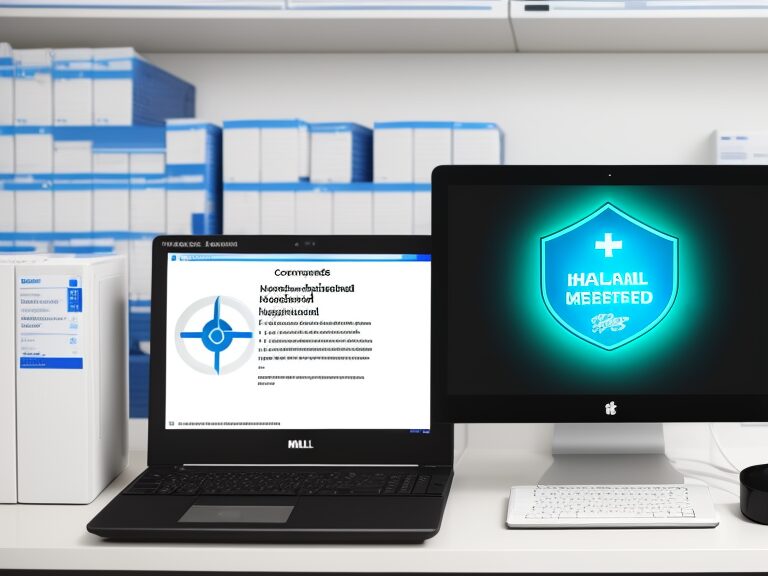Unfortunately, healthcare cyber attacks are a very serious issue with real-world consequences. Here’s what you need to know:
The Scope of the Problem

Attacks are on the rise, with over 100 million people affected in 2023. This represents a significant jump from previous years. ![]() These attacks can have devastating consequences by exposing sensitive patient information like medical records, social security numbers, and financial data. Ransomware can lock healthcare providers out of their own systems, disrupting critical care and potentially delaying diagnosis and treatment.
These attacks can have devastating consequences by exposing sensitive patient information like medical records, social security numbers, and financial data. Ransomware can lock healthcare providers out of their own systems, disrupting critical care and potentially delaying diagnosis and treatment. ![]() Shutting down IT systems and preventing access to medical devices, leading to delays in procedures and appointments.
Shutting down IT systems and preventing access to medical devices, leading to delays in procedures and appointments. ![]() Healthcare organizations incur significant costs to recover from attacks, including legal fees, ransom payments, and credit monitoring for affected patients.
Healthcare organizations incur significant costs to recover from attacks, including legal fees, ransom payments, and credit monitoring for affected patients.
Why Healthcare is Vulnerable

It has Valuable Data. Patient information is highly valuable on the black market, making healthcare organizations prime targets. ![]() Healthcare relies on a complex network of interconnected devices and software, creating more attack vectors for hackers. Legacy Technology is expensive to replace.
Healthcare relies on a complex network of interconnected devices and software, creating more attack vectors for hackers. Legacy Technology is expensive to replace. ![]() Some healthcare systems still use outdated technology with known security vulnerabilities. Staff Training takes time. Busy healthcare professionals may not always be aware of the latest cyber threats and best practices.
Some healthcare systems still use outdated technology with known security vulnerabilities. Staff Training takes time. Busy healthcare professionals may not always be aware of the latest cyber threats and best practices.
The Human Cost

Beyond the financial and operational impacts, healthcare cyber attacks can have a real human cost. Delayed care, inaccurate diagnoses, and stolen identities can all have serious consequences for patients.
What’s Being Done
![]() Healthcare organizations and government agencies are taking steps to address these threats. Companies are Investing in cybersecurity. Implementing stronger security measures and updating technology.
Healthcare organizations and government agencies are taking steps to address these threats. Companies are Investing in cybersecurity. Implementing stronger security measures and updating technology. ![]() Raising awareness by educating staff about cyber threats and best practices. Publicly Sharing information and Collaborating to share intelligence and develop better defenses.
Raising awareness by educating staff about cyber threats and best practices. Publicly Sharing information and Collaborating to share intelligence and develop better defenses. ![]() Government Regulation by Implementing stricter regulations and standards for data security.
Government Regulation by Implementing stricter regulations and standards for data security.
The fight against healthcare cyber attacks is ongoing

While progress is being made, it’s crucial for everyone involved (healthcare organizations, patients, and government) to remain vigilant and proactive in protecting sensitive data and ensuring the safety of patients.
To learn more you can visit the Cybersecurity & Infrastructure Security Agency,
Visit AITV to get more AI News.



